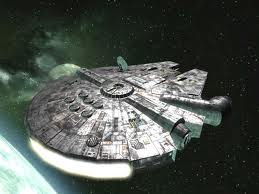YT-1300
| YT-1300 | |

| |
| Navigational Stats | |
| Hyperspeed | 6.0 |
| Sublight Speed | 60 MGLT |
| Max Speed | 600 km/h |
| Maneuverability | 6.00 |
| Sensors | 1 |
| ECM | 0 |
| Abilities | |
| Escape Pods | n/a |
| Docking Bay | n/a |
| Hangar Bay | |
| Landing Capacity | |
| Flight Grade Repulsorlifts | |
| Graviton Generators | n/a |
| Docking Port | n/a |
| Medical Room | n/a |
| Storage Room | {{{storageroom}}} |
| Recycling | n/a |
| Weapons/Utilities | |
| Weapons/Utilities | Proton-Torpedo Launchers: 2 Heavy Laser: 8 |
| Cargo Stats | |
| Weight | 400 T |
| Volume | 3,780 m³ |
| Weight Capacity | 15 T |
| Volume Capacity | 50 m³ |
| Max Passengers | 8 |
| Party Slot Size | 4.00 |
| Hull Statistics | |
| Length | 27 m |
| Hull | 170 |
| Shield | 135 |
| Ionic Capacity | 85 |
| Raw Materials | |
| Raw Material Price | 318,552 |
| Quantum | 49 |
| Meleenium | 504 |
| Ardanium | 52 |
| Rudic | 41 |
| Rockivory | 52 |
| Tibannagas | 74 |
| Varmigio | 243 |
| Lommite | 14 |
| Durelium | 81 |
| Bacta | n/a |
| Hibridium | n/a |
| Varium | n/a |
| Affiliations | |
| Affiliation | Incom Corporation |
Fast and light, the YT-1300 was a modified version of the YT-1210 design. Severe flaws in the 1210 series left it without enough power to have much weaponry and with the new banks of Nordoxicon 38s carried by the 1300 series, Corellian engineers put as much weaponry as they could on it. Considered one of the most common and popular ships in the galaxy, it is used by pirates, smugglers and bounty hunters as well as in many planetary garrisons.
The YT-1300 is mainly an anti-fighter ship with 8 heavy lasers as standard located on top and on the bottom of the ship. These can be fired from the cockpit, but with greatly reduced accuracy. The YT-1300 also has two proton torpedo launchers mounted between the sensor forks at the front of the ship to deal with light to medium freighters. The ship could be modified to include retractable blaster cannons, concussion missile launchers and improved sensor arrays, giving it greater fire-power in battles.
One of the most appealing features of the YT-1300 is its ability to take an extraordinary amount of modifications and alterations. In addition to the improved weaponry, the YT-1300 could take anything from additional underfloor storage to an improved hyperdrive. The interior of the ships could also be configured to increase its cargo capacity, at the expense of minimum comfort for the crew as more room was given to the cargo.
History
Conceived by a panel of CEC shipbuilding experts the YT series went on to become one of the most popular space transport hulls ever produced, revolutionizing the interstellar shipping industry with its unparalleled application of modular design. Whole sections could be mass-produced and arranged into new configurations as needed without extensive retooling. This saved enormous amounts of credits by allowing the starships to be brought to market at extremely competitive prices.
The YT-1300 model exemplified this concept with a circular main corridor and modular compartments that could be mounted around it, all radiating outwards from a central core inside a saucer-shaped hull making for both a convenient and economic design.
It was considered an equivalent of its time to the Old Republic Barloz-class freighter.
Appeal
The appeal of the YT-1300 transport was not its basic equipment, however, but its ability to take an extraordinary amount of modifications and alterations. In short, the YT-1300 was reliable, durable, and easy to modify, hence its popularity amongst freighter captains throughout the galaxy. While all YT-1300s looked similar from the outside, the interior of the ship could be configured in a number of ways thanks to the modular design. Two of the most popular designs, and which saw the greatest levels of production, were the freight (YT-1300f) and passenger (YT-1300p) configurations. It was not uncommon to find ships with a mixture of both passenger and cargo configurations belonging to more entrepreneurial captains however, and later in the life-cycle of the YT-1300 product line the CEC execs grew wise to this fact.
Holographic
